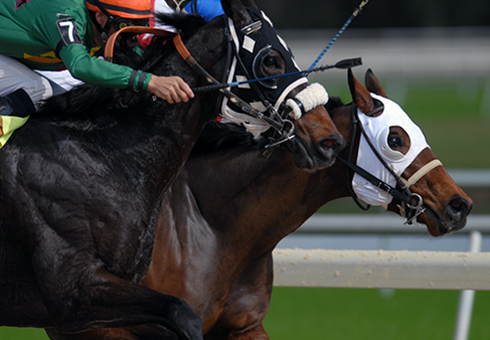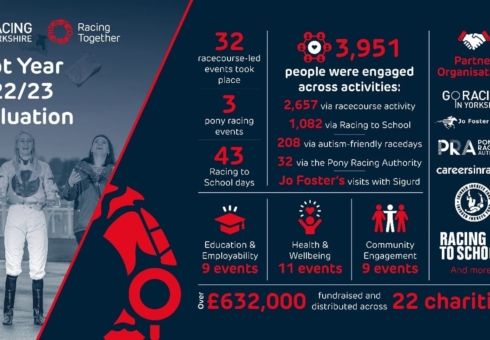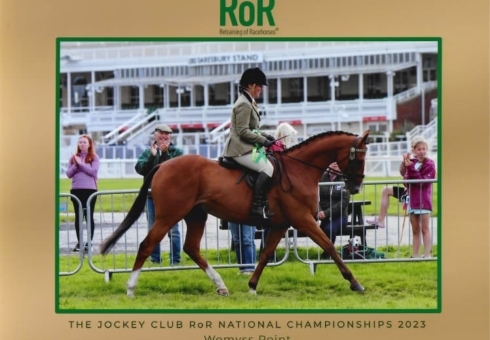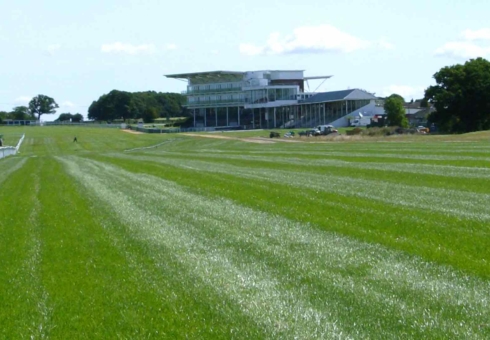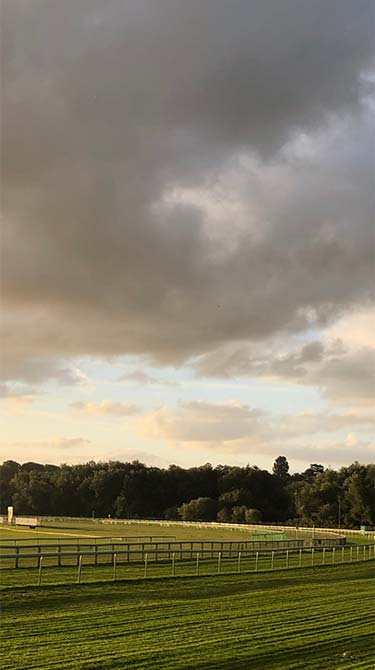A major study, commissioned by Go Racing In Yorkshire on behalf of Yorkshire’s nine racecourses, has revealed that the horseracing industry contributes in excess of £300 million a year into the county’s economy.

A major study, commissioned by Go Racing In Yorkshire on behalf of Yorkshire’s nine racecourses, has revealed that the horseracing industry contributes in excess of £300 million a year into the county’s economy.
The study into the economic impact of horseracing in Yorkshire was carried out by the Centre for Regional and Economic Research at Sheffield Hallam University thanks to funding from the Racing Foundation. Using pre-Covid data from 2019, the study revealed that the horseracing industry in Yorkshire contributes £300.2 million to the county’s economy, through both racing and non-raceday events.
Among the key findings were that racegoers spent £34.1 million off-course, on things such as transport, food, beverages and hotels, while those attending the racecourses for non-racing events such as conferences spent £15.3 million in the county.
The industry supports more than 3,600 full time equivalent jobs, over three quarters of which are in rural areas. Over 2,400 horses are trained in the county, which represents 17% of all racehorses trained in Britain, while the county is home to 15% of Britain’s trainers.
John Sexton, Chairman of Go Racing In Yorkshire said: “A first economic impact study was commissioned in 2010 using 2009 data and we felt it was important to update those findings. We wanted to look at the impact racing has on the Yorkshire economy and the benefits it brings to the wider community. We are very grateful to the Racing Foundation for their support of this study”.
Yorkshire serves every strata of racing life, with nine racecourses, staging some of the world’s most important races, two major training centres at Middleham and Malton, a major Sales venue at Doncaster, the National Racing College, a state-of-the-art rehabilitation and recovery facility for jockeys and stable staff at Jack Berry House and the New Beginnings retraining centre.
“The study was commissioned before the Covid-19 pandemic struck and the effects are being felt in Yorkshire as much as any other part of the world. This timely piece of research reinforces how vital horseracing is to the Yorkshire and rural economy, plus the social and community aspect of the industry. “Early assessments show that Covid -19 could reduce the impact of racing on the Yorkshire economy by 72% at a cost of £114.8m, underlining that the sooner we can get back to normality the better.”
John added: “The charitable work of racing in Yorkshire should also be noted. This is worth between £1.6m to £2m a year through charity racedays, fundraising activities, sponsorship and local charity donations. “However, the charitable aspect is far reaching with support in the wider racing industry as well as community events, such as Racing Welfare’s regular coffee mornings for retired staff.”
Ian Wilson, Deputy Director, Centre for Regional Economic and Social Research and author of the study said,
“The study has revealed the value of Yorkshire’s horseracing industry to both the economy and social fabric of the region. As well as making a significant economic impact, the industry supports more than 3,600 full time equivalent jobs in the region, over three quarters of which are in rural areas – where it is a main employer. Through the National Horseracing College and charities such as Racing Welfare the industry also provides specialist support to those entering horseracing to be successful and happy in their work.”
For a copy of the Economic Impact Study and supporting documentation and information please click this link
NOTES
Go Racing In Yorkshire
Go Racing In Yorkshire is the marketing organisation for Yorkshire’s nine racecourses. It is funded by the racecourses and the sale of the annual season ticket which allows admission to all of Yorkshire’s race meetings.
Contact: Charlotte Russell, charlotte.russell@goracing.co.uk or 07305 932411.
The Racing Foundation
The Racing Foundation was established in January 2012 to oversee the distribution of funds to charitable causes within racing following the sale of the Tote. The British Horseracing Authority, the Horsemen’s Group and Racecourse Association are the three joint Members of the charity, which is registered with the Charity Commission as a charity under the law of England and Wales (no. 1145297). The Trustees of the Racing Foundation are: Ian Barlow (Chairman), Linda Bowles, Susannah Gill, Mark Johnston, Louise Kemble and William Rucker. Since inception, the Racing Foundation has granted over £20million to charities associated with the horseracing and Thoroughbred breeding industry in the UK, supporting work in social welfare, education, training and participation, horse welfare, equine science research, and heritage and culture. Website: www.racingfoundation.co.uk Twitter:@RacingGrants
About Sheffield Hallam University
Sheffield Hallam University’s vision is to become the world’s leading applied university, transforming lives and creating opportunities for people from all backgrounds.
Named University of the Year for Teaching Quality in the Times and Sunday Times Good University Guide 2020, Sheffield Hallam is one of the UK’s largest higher education providers, with over 30,500 students.
The University is committed to the Sheffield City Region, providing leadership to drive improvements in social mobility, health and the economy. By improving productivity, narrowing skills gaps and supporting business through innovation and enterprise, Sheffield Hallam University is driving future economies. From ground-breaking research to extensive and pioneering training programmes, Sheffield Hallam University is a national leader in creating innovative solutions that enable healthier lives.
Sheffield Hallam offers a comprehensive range of courses and is one of the country’s largest providers of health and teacher training. Its industrial partnerships ensure that the knowledge students develop is relevant, addresses the skills gap and helps business grow. The University’s research is characterised by a focus on real world impact – addressing the cultural, economic and social challenges facing society today.
About the Centre for Regional Economic and Social Research (CRESR)
As a leading UK policy research centre, CRESR seeks to understand the impact of social and economic disadvantage on places and people, and assess critically the policies and interventions targeted at these issues.
Clients include government departments and agencies, local authorities, charities and foundations, international organisations, and the private sector. We offer research expertise covering a wide range of qualitative and quantitative methods, evaluation, policy advice and guidance, and consultancy.

